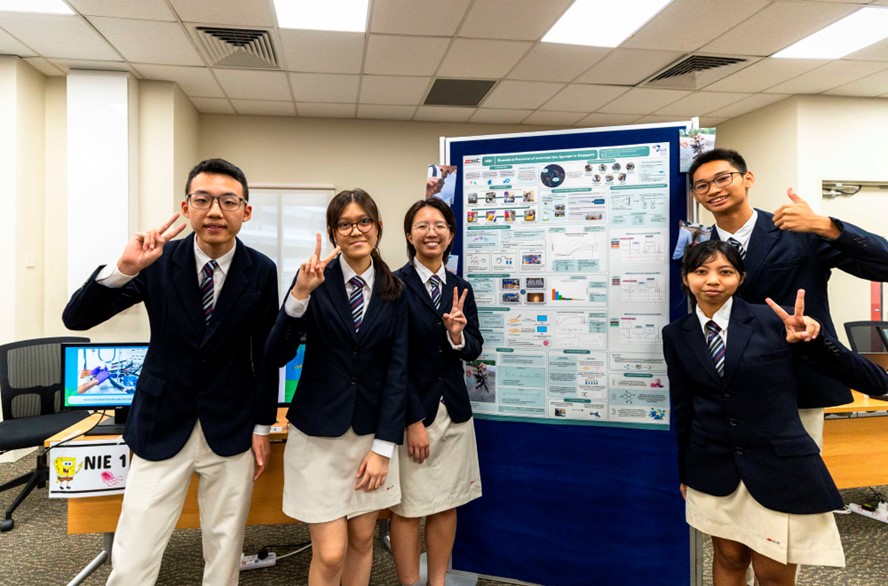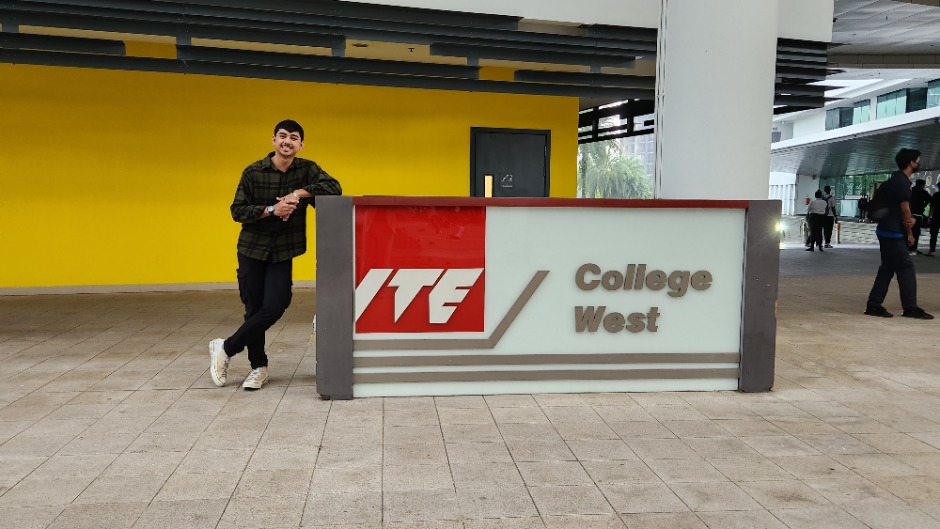Tay Soon Boon doesn’t look that different from the rest of his peers. Working-class family, likes video gaming and sleeping. Armed with a diploma in information security and fresh out of National Service, Soon Boon considered pursuing a degree in computer science – like many of his former classmates, all aiming to be professional software engineers.
In addition, Soon Boon’s gut was telling him to get some work experience first.
“I wanted to work as much as I hoped to further my studies,” recalls Soon Boon, 25, admitting that he didn’t quite know what he wanted for a career.
Luckily for him, it was 2015.
That year, Nanyang Polytechnic (NYP) – his alma mater – launched the SkillsFuture Earn and Learn Programme (ELP) for software development. The 12-month programme offered by the School of Information Technology combined classroom education with workplace training. Graduates of this ELP receive a Specialist Diploma in Information Systems Development.
In other words, it is a work-study job where learning is hands-on and students are paid, explains Melvyn Suan, 39, deputy director of NYP’s School of IT.
Soon Boon seized the opportunity – and boy, did it pay off.
Hacking It in the Workplace
After reviewing Soon Boon’s resume, academic transcript and ELP interview, NYP matched him to Accenture Singapore, a multi-national corporation participating in the programme.
Soon Boon started in August 2015, testing security systems for Accenture’s web and mobile applications under the guidance of a mentor. “This was the first real-world environment for me to apply the knowledge and protocols taught in school,” he says.
He quickly found his groove at work and a passion for keeping networks safe from online threats.
Within three months, he was a member of the coding team designing a new authentication system for a database, which serves over three million users. (Most recently, Soon Boon helped to scan and monitor the system for malicious files after the WannaCry ransomware attack.)
By the fourth month, he was being considered for a promotion.
At the end of 2015, Soon Boon’s training wheels were taken off. He was given that promotion – and with it the title of Software Engineer. In Accenture’s books, it meant that he was ranked on par with hires fresh from university.
By the end of 2016, with his ongoing good performance, Soon Boon was promoted another step up, and was made a Software Engineer Analyst. His role now includes deconstructing the kind of security a client needs, in order to develop a firewall that meets those requirements.
Under the ELP, Accenture has hired a total of 51 graduates from four polytechnics. 29 graduated from NYP, of whom 12 (excluding Soon Boon) were promoted to Software Engineers in 2016. But Soon Boon’s hard work pushed him a rung higher.
“It’s uncommon for an employee to get back-to-back promotions,” says Accenture’s Roger Goh, 36, project manager and Soon Boon’s mentor. After all, a new hire – no matter how experienced – normally takes up to six months to be acquainted with the code base and software system. Becoming an expert can take up to two years.
“For Soon Boon, I was impressed by the in-depth thought process he demonstrated,” Roger adds. “He’s responsive and resourceful, and a fast learner. When given more responsibilities, he showed that he could perform at the next level.”
A Rapid Start to Career Goals
Career progressions aren’t guaranteed for the ELP. However, it creates a formal structure for employers to develop newcomers’ talents and communicate the growth path. The ELP shows how education can co-exist with the work experience that all software engineers need.
It’s not academic ability that Accenture looks for, but problem-solving ability. It’s good to gain knowledge like computer science and analytics, but what counts at the end is what you can do with it.
“We work closely with companies to ensure that students are learning on the job,” explains NYP’s Bryan Hoo, 43, senior lecturer at the School of Information Technology and a liaison officer for ELP students including Soon Boon. “Promotions, on the other hand, are based entirely on students’ performance. It’s a recognition of their good work as employees.”
It’s something Soon Boon now knows for a fact.
“My colleagues aren’t interested if you’ve got a degree or a diploma,” says Soon Boon. “We all work as a team to perfect a system that is running 24/7.”
Nonetheless, the ELP not only gave Soon Boon a start to his career, but also helped to shape his future plans. “I’d continue on this path for my working life,” he says.
He might still pursue that degree in computer science, after all. Now, however, it would be to bring value to his burgeoning career.



.jpg)
eacf7ba7a8a66eb2afccc900c73e6f2e.jpg)

